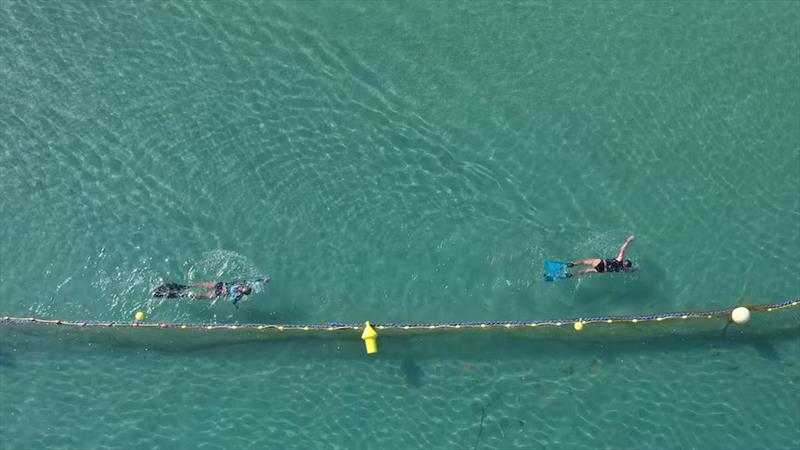
Sea swimming ban in Nouméa
by Daria Blackwell / OCC 3 Sep 2023 00:54 UTC

Two swimmers swim along a roped-off area at a beach in New Caledonia © ABC News / Nicolas Job
In the island paradise of New Caledonia's capital Nouméa, it's illegal to swim in the sea — except along a 200-metre stretch of beach.
The months-long swimming ban came into effect across Nouméa in February, shortly after an Australian tourist died following a shark attack at the popular Chateau Royal beach. In May, heavily restricted swimming was permitted at a roped-off area at Baies des Citrons. The ban — which is to be lifted by the end of the year — is a stopgap measure.
Since 1958, there have been 76 shark attacks documented in the Pacific island nation, with 17 of them fatal. This year alone has seen four shark attacks, two of them lethal.
For its small population of 270,000, the rate of shark attacks is increasing, and it's one of the highest rates per capita in the world. Shark attacks are increasing worldwide, so New Caledonia is not an exception.
Paradoxically, a decade-long ban on shark fishing may be at the root of the issue. The ban was lifted in 2021 and shark culling has been taking place this year. Shark culling may be effective in the short term but presents unknowns and is controversial on scientific and ethical grounds. Sharks have been shown to travel 750 kilometres or more, so a shark removed from waters here can be replaced by another.
Similarly, shark nets remain controversial. A state government report found of the 228 animals caught in the nets in 2022-23, just 24 were sharks considered threatening to humans.
Strategies deployed in Australia, such as tracking the presence of sharks with drones which is absolutely harmless to sharks and rather effective in protecting the public, are under consideration.
This article has been provided by the courtesy of the Ocean Cruising Club.